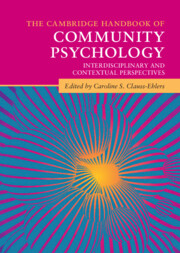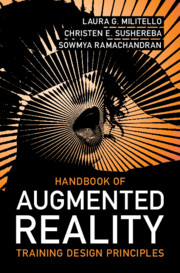The Cambridge Handbook of Moral Psychology
The Cambridge Handbook of Moral Psychology is an essential guide to the study of moral cognition and behavior. Originating as a philosophical exploration of values and virtues, moral psychology has evolved into a robust empirical science intersecting psychology, philosophy, anthropology, sociology, and neuroscience. Contributors to this interdisciplinary handbook explore a diverse set of topics, including moral judgment and decision making, altruism and empathy, and blame and punishment. Tailored for graduate students and researchers across psychology, philosophy, anthropology, neuroscience, political science, and economics, it offers a comprehensive survey of the latest research in moral psychology, illuminating both foundational concepts and cutting-edge developments.
- Includes both philosophical and psychological perspectives on morality
- Broad coverage from theory to application, reflecting both convergence and ongoing debates in the field
- Includes developmental, cognitive, social, cultural, neuroscientific, and evolutionary perspectives
Product details
February 2025Hardback
9781108841597
664 pages
254 × 178 mm
Not yet published - available from February 2025
Table of Contents
- 1. Modern moral psychology: a guide to the terrain Bertram F. Malle and Philip Robbins
- Part I. Building Blocks:
- 2. Moral character Geoffrey P. Goodwin and Justin F. Landy
- 3. Moral motivation William Ratoff and Adina L. Roskies
- 4. Norms: inference and interventions Giulia Andrighetto and Eva Vriens
- 5. Moral dilemmas Joanne Demaree-Cotton and Guy Kahane
- 6. The moral domain: what is wrong, what is right, and how your mind knows the difference Samantha Abrams and Kurt Gray
- Part II. Thinking and Feeling:
- 7. Moral decision-making: the value of actions Laura Niemi and Shaun Nichols
- 8. Are moral judgments rational? Jonathan Baron
- 9. Moral categorization and mind perception Philip Robbins
- 10. Moral emotions: are they both distinct and good? Pascale Sophie Russell
- 11. The benefits and costs of empathy in moral decision-making Jean Decety
- Part III. Behavior:
- 12. Prosociality Oriel FeldmanHall and Marc-Lluís Vives
- 13. Antisocial and moral behavior: a review and synthesis Kean Poon and Adrian Raine
- 14. Intergroup conflict and dehumanization Nick Haslam
- 15. Blame and punishment: two distinct mechanisms for regulating moral behavior Bertram F. Malle
- 16. Moral communication Friederike Funk and Victoria McGeer
- Part IV. Origins, Development, and Variation:
- 17. Grounding moral psychology in evolution, neurobiology, and culture Darcia Narvaez
- 18. Moral babies? evidence for core moral responses in infants and toddlers Kiley Hamlin and Francis Yuen
- 19. An integrative approach to moral development during adolescence Abigail A. Baird and Margaret M. Matthews
- 20. Morality in culture: the fate of moral absolutes in history Richard A. Shweder, Jacob R. Hickman and Les Beldo
- Part V. Applications and Extensions:
- 21. Criminal law, intuitive blame, and moral character Janice Nadler
- 22. Moral dimensions of political attitudes and behavior Kate W. Guan, Gordon Heltzel and Kristin Laurin
- 23. Moral and religious systems Benjamin Grant Purzycki and Theiss Bendixen
- 24. Lessons from moral psychology for moral philosophy Paul Rehren and Walter Sinnott-Armstrong
- Index.






